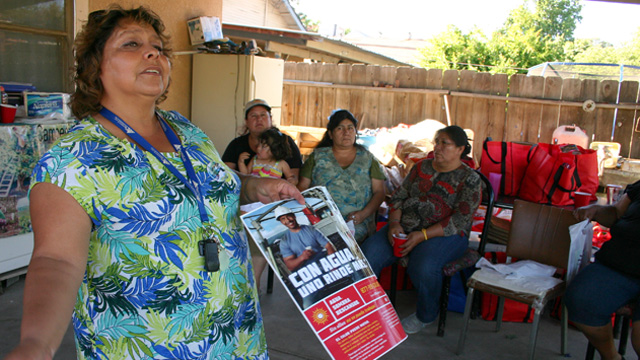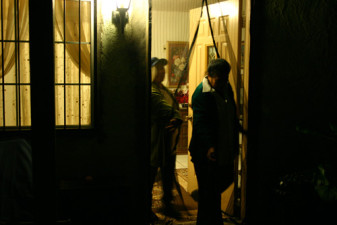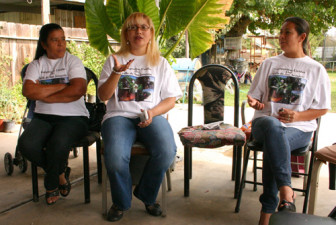Determined Farmworker Helps Others Confront Sexual Harassment in the Fields

Determined Farmworker Helps Others Confront Sexual Harassment in the Fields
Sandra Garcia has worked the Central Valley’s harvests since she emigrated from Mexico at age 16.
Just past dawn on a cold morning, the 57-year-old grandmother pulls her Dodge Caravan into a vineyard northeast of Delano to spend the day harvesting grapes.
“Now I don’t even want to eat them, after so many years of picking grapes,” Garcia says.
Farm work is only one of Garcia’s jobs. On many afternoons, she goes from a full day in the fields to a meeting of Campesinas Unidas — the United Women Farmworkers of the San Joaquin Valley.
She founded the group almost 25 years ago to help farmworker women learn their rights and protect their health and safety. The idea took root when her mother, also a farmworker, died of cancer at age 47. The family blamed her constant exposure to pesticides.
“At that time,” says Garcia, “there was no one to give us information, to tell us how to protect ourselves.”

Garcia and her co-workers started meeting on lunch breaks, at first about pesticide poisoning. But they quickly saw the need to tackle more problems.
Garcia recalls one incident, when a fieldworker came crying to the group. “She told us the foreman had laid her down in the field and taken off her clothes and abused her. We didn’t know what to do. And that’s when we started wanting to learn about sexual harassment at work.”
At a recent meeting of Campesinas Unidas, 10 women gathered on a shaded back patio in central Tulare. The topic was heat stroke. But Garcia, as usual, took the opportunity to hand out a pamphlet on sexual harassment — offering phone numbers of pro bono lawyers.
Garcia knows that these women, many of them undocumented immigrants, are reluctant to say they’ve been sexually harassed. But seasoned members, like Raquel Sanchez, show the way.
“I had a problem just recently in the peach orchards, where the supervisor was following me around,” Sanchez told the group. “He was telling me about his life and how pretty I was. And I said to him, ‘You know what, I’m married. I come here to work, not to look for a husband.’”
Garcia approved of Sanchez’s defiant attitude, joking that now she intimidates her bosses, not the other way around.

Group leaders like Sanchez are called promotoras. They’re trained by lawyers and health workers on everything from minimum wage laws to diabetes; then they educate other women. When it comes to sexual harassment, Garcia says farmworkers often need to know the very definition of the term, including the seemingly innocent ways abuse can begin.
“It starts with him giving you a chocolate,” she explains. “No boss is going to come and give you a chocolate or a soda, right? … At lunchtime he goes and sits with you. What does he want? No boss wants to sit down with us to eat. So, we have to explain all that.”
Since the women are usually too afraid of losing their jobs or being deported to consult a lawyer, their complaints rarely leave the safety of the meeting. Garcia gets frustrated by these dead-ends. But she says at least the group’s camaraderie can help comfort women in trauma.
Sandra Garcia suspected pesticides could have played a role in her mother's death from cancer at age 47, so she launched the farmworker group initially to target pesticide poisoning. But she quickly began hearing stories of women being sexually harassed or assaulted in the fields, so she expanded the group's mission to tackle more problems.
“You talk about your problems,” Garcia says, “and then at least when we’re all together in the group, we forget our problems a little bit.”
The tireless Garcia often clocks 300 miles a week, crisscrossing the San Joaquin Valley for Campesinas Unidas. The group has grown from its original 30 members to more than 200.
They’ve lobbied in Sacramento for stronger laws to protect farmworkers. But Garcia says the women must rely on defending themselves — and learn to demand the respect they deserve.
This series was reported in collaboration with Bernice Yeung of the Center for Investigative Reporting and the UC Berkeley Investigative Reporting Program. It's part of a larger project with Frontline and Univision.
